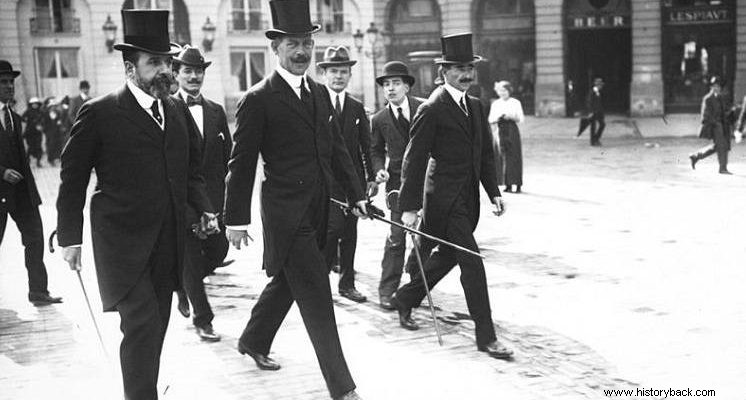
While the Greek Army was breaking up the Bulgarian defense in Kresna, during the Second Balkan War, Prime Minister Venizelos was negotiating the peace treaty in Bucharest. Under the pressure of the great powers, Russia and France, Venizelos constantly sent telegrams to the king and commander-in-chief Constantine, asking him to stop at the occupied positions and not to advance further north.
A new crisis broke out in the relations between the two men and Venizelos submitted his resignation, which was not accepted by Konstantinos, who complied with his prime minister's instructions.
The disagreement between the two men was over the simple question of how to achieve peace. Constantine demanded an immediate peace between Greece and Bulgaria, in which the latter would acknowledge its defeat, before the great powers could intervene.
He also demanded the cession of Eastern Macedonia, up to Kavala in Greece, as the minimum territorial "compensation", since the Greek Army had advanced as far as Tzoumagia, in the north, and Komotini and Alexandroupoli, in the east. Russia, Austria and France reacted to the Greek claims.
But Germany supported them, not of course because it harbored pure feelings in favor of Greece, but because it considered the occasion a golden opportunity to weaken Russian influence in the Balkans. France, fearing that Greece might turn to German arms, finally changed its opinion and accepted the concession of Eastern Macedonia to Greece.
So Greece, with the blood of her children, also liberated Eastern Macedonia, which had been destroyed by the Bulgarians, and immediately took care of its protection. Due to the lack of the necessary funds, following the proposal of lieutenant colonel Ioannis Metaxas, nine "relief" forts were built along the Greek-Bulgarian border, one of which was Rupel.
These euphemistic forts naturally had nothing to do with the permanent fort complexes built in 1937-40. They were actually barbed-wire fenced, fortified with trenches and some amphibious, enclosed camps of very limited defensive capability.
France, the "provocation" and the rage against Constantine
The doubling of the national territory, the victories of the army, led by King Constantine, the international recognition of the feats of the Greek Army, with the awarding of the rank of marshal to Constantine by this Kaiser of Germany, caused a wave of national euphoria among all Greeks .
However, the clouds began to gather before the ink on the Treaty of Bucharest was completely dry. The awarding of the rank of marshal to Constantine by the German Emperor William caused discontent in France.
Indeed, when on September 6, 1913 Constantine arrived in Berlin, as an official guest of William, to attend the high schools of the German Army, a wave of French public opinion angered him, when he declared that in the recent Balkan Wars he applied what he had learned in Prussian Military Academy.
A major Parisian newspaper wrote:"This is not a royal blunder. They are measured words, a planned insult, a paraphrase of "Germany above all". The best thing for him to do is to return to his country via Germany, on a German boat.
"It is not the right time for him to come to Paris (Constantine planned to visit the French capital after the end of his duties in Germany, precisely so as not to create a bad impression on the French).
"Goodbye, Your Majesty, and see you again." Nevertheless, Constantine went to Paris and managed to turn the tide against him. Despite the pleasant atmosphere, however, the French politicians were not convinced of Constantine's intentions, considering him suspect, due to his relationship with the Kaiser (Constantine had married the Kaiser's sister, Princess Sophia).
In this case, however, the French were wrong. And indeed the Prussian tactics, as much as they didn't like them, were superior to their own as was seen in the early stages of the First World War.
